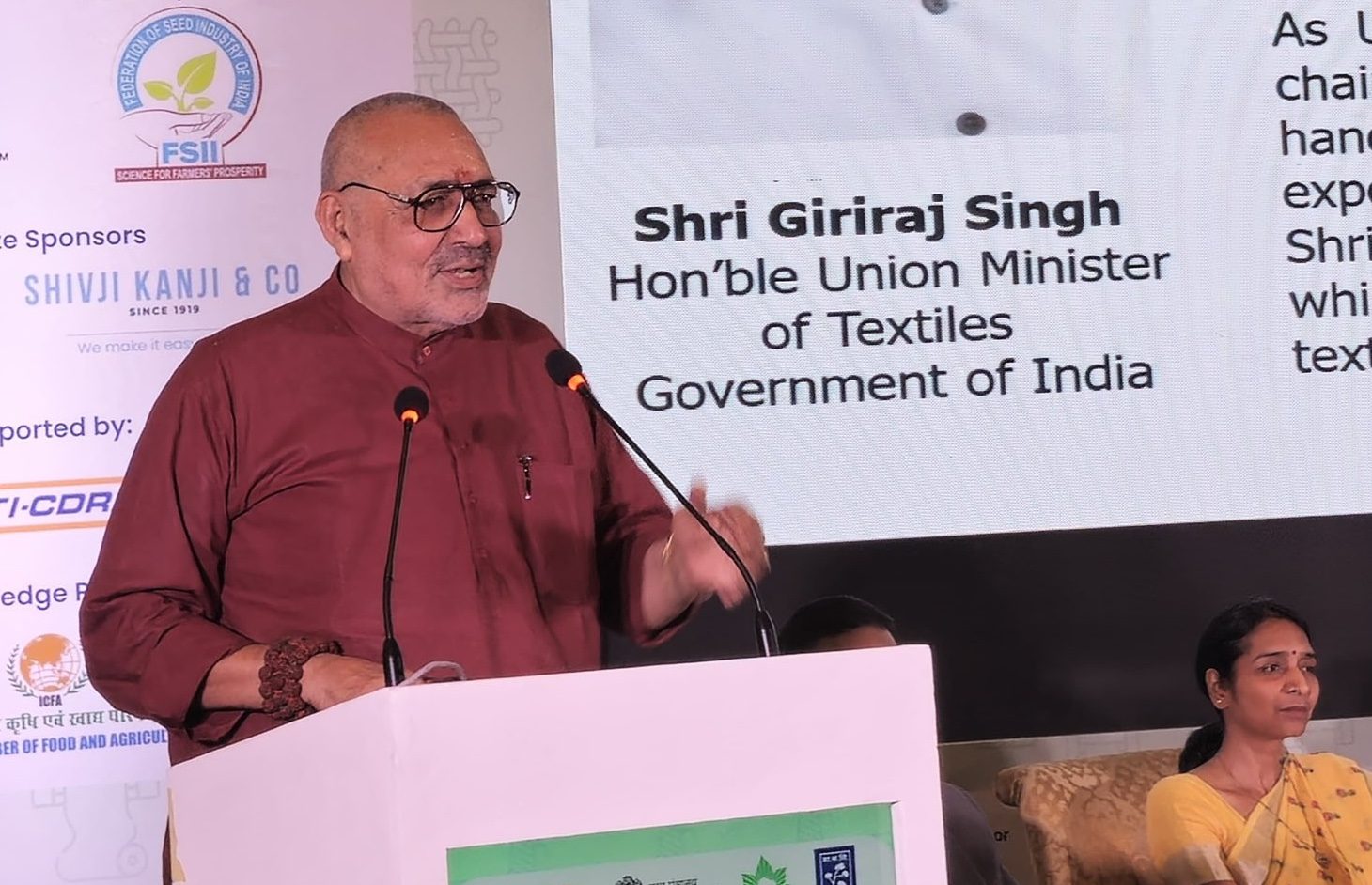The Ministry of Textiles on Tuesday celebrated World Cotton Day 2025 with a strong push for sustainability, technology adoption, and export growth in the cotton sector. Union Minister of Textiles Giriraj Singh reaffirmed the government’s commitment to achieving USD 100 billion in textile exports as part of a broader USD 350 billion textile sector target by 2030, alongside the goal of carbon neutrality.
Speaking at the event held in New Delhi and jointly organised by the Ministry of Textiles and the Confederation of Indian Textile Industry (CITI), the Minister said cotton is not just a crop, but the soul of Indian agriculture — a reflection of farmers’ resilience and hope.
He stressed that India, which holds 40% of the world’s cotton cultivation area, still lags in productivity at around 450 kg per hectare, compared to global levels of 2,000 kg per hectare. To address this gap, a “Mission for Cotton Productivity” is under active consideration, he said.
The Minister also highlighted the potential of natural fibres like milkweed, ramie, and flax, urging the cotton and textile industry to adopt eco-friendly practices in response to climate change. “Efficient use of water and electricity, soil conservation, and adoption of renewable energy are critical to protecting India’s predominantly rain-fed cotton regions,” he said.
Singh called upon the entire cotton value chain — from farmers and ginners to brands and exporters — to emotionally connect with the journey of cotton and elevate *Kasturi Cotton Bharat* into a globally recognized premium cotton brand, akin to Egyptian Giza or American Supima.
The event witnessed the signing of several Memoranda of Understanding (MoUs) under the Kasturi Cotton Bharat initiative with leading organisations such as Arvind Ltd, Nitin Spinners, RSR International, All India Cotton FPO Association, Beetle Regen, ICAR-CIRCOT, Hohenstein, and Noida Apparel Export Cluster. The brand aims to position Indian cotton as a symbol of purity, quality, and sustainability in global markets.
Union Minister of State for Textiles and External Affairs Pabitra Margherita, in his address, underlined the importance of achieving leadership in sustainability, quality, and ethical production. He noted that initiatives like Kasturi Cotton align with the government’s 5F vision — farm, fibre, factory, fashion, and foreign.
The programme also included insights from CCI Chairman-cum-Managing Director Lalit Kumar Gupta and representatives from leading industry bodies like CITI and TEXPROCIL, who reiterated cotton’s crucial role in driving economic growth, employment, and livelihoods, particularly for women and rural communities.














